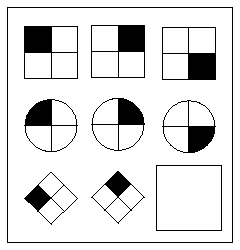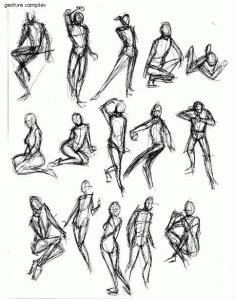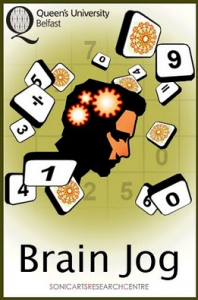 Music is great for the brain in many ways. Learning to play a musical instrument is an excellent investment in improving brain function and cognitive performance. An interesting new study suggests that the brain boost we get from music lessons may last a lifetime. The study reported by the American Psychological Association examined the cognitive performance of adults (ages 60 t0 83) that studied music in childhood.
Music is great for the brain in many ways. Learning to play a musical instrument is an excellent investment in improving brain function and cognitive performance. An interesting new study suggests that the brain boost we get from music lessons may last a lifetime. The study reported by the American Psychological Association examined the cognitive performance of adults (ages 60 t0 83) that studied music in childhood.
“The high-level musicians who had studied the longest performed the best on the cognitive tests, followed by the low-level musicians and non-musicians, revealing a trend relating to years of musical practice. The high-level musicians had statistically significant higher scores than the non-musicians on cognitive tests relating to visuospatial memory, naming objects and cognitive flexibility, or the brain’s ability to adapt to new information.”
While these findings are tentative and require additional research, they do signal that musical training is a powerful tool for building your Next Brain.
Interested to hear from readers that were trained musically as children. How has that shaped your cognitive skills as an adult?
 Mental toughness is the idea that we can train our brains to be in a higher state of readiness and more resilient to stress and challenges from the environment. The idea grew out of sports psychology where high performing athletes exert tremendous mental control and focus on demand and under great pressure. It is being applied in the US military and is the subject of dozens of books aimed at improving success in ordinary life.
Mental toughness is the idea that we can train our brains to be in a higher state of readiness and more resilient to stress and challenges from the environment. The idea grew out of sports psychology where high performing athletes exert tremendous mental control and focus on demand and under great pressure. It is being applied in the US military and is the subject of dozens of books aimed at improving success in ordinary life.
We have covered some of the techniques of mental toughness here in the Next Brain Blog. For those interested in learning more I recommend checking out the Mental Toughness Summit. This is a free on-line event that runs from April 25-29th. Some of the best names in the business are involved and it is sure to be loaded with specific ideas from improving brain function and cognitive performance. The host, Renita Kalhorn, will interview 12 leaders in the field. Attendees get to listen in as well as review recording of the interviews over a 24-hour period. There is also the option to upgrade to a premium service where you pay for an MP3 of the interviews.
I am going to attend as much as possible and will blog what I learn. I hope some readers are able to attend too and will share their insights.
 There is growing scientific evidence that experiencing art both passively and actively can improve brain function and cognitive performance. Art is used as a form of cognitive therapy with older adults and art training is advocated for children by some experts:
There is growing scientific evidence that experiencing art both passively and actively can improve brain function and cognitive performance. Art is used as a form of cognitive therapy with older adults and art training is advocated for children by some experts:
Michael Posner argues that when children find an art form that sustains their interest, the subsequent strengthening of their brains’ attention networks can improve cognition more broadly.
Experiencing art means experiencing beauty which is powerful emotive and intellectual stuff. There are many anecdotal claims that it enhances mental energy, creativity, improves focus and relieves stress.
Some readers of the Next Brain Blog (including myself) have reported success with a very simple art-based technique.
- Find an a new art form that deeply resonates with you. Mine turned out to be the work of Juri Morioka (see sample above).
- Acquire legal, affordable and high quality copies.
- Consciously experience it on a daily or frequent basis.
It is important to find a new art form, not one you have always liked. Also you may need to change the specific pieces you experience periodically to maintain the intensity of the cognitive effects.
Interested to hear from readers that use this or other art-based techniques to enhance brain function and cognitive performance.
Image source: Paintings by Juri Morioka
 When working on a difficult problem or puzzle people will sometimes begin to mutter or even talk out loud. When trying to resist a tempting piece of chocolate cake or deal with an emotional issue we can coach ourselves with positive self talk that sometimes happens aloud.
When working on a difficult problem or puzzle people will sometimes begin to mutter or even talk out loud. When trying to resist a tempting piece of chocolate cake or deal with an emotional issue we can coach ourselves with positive self talk that sometimes happens aloud.
Can talking to yourself out loud make you a better problems solver or more emotionally intelligent?
Common practice says yes. Unfortunately, it is not very clear on when the technique might work. Plus there is no scientific evidence to back the idea up, until now.
Came across a unique study, How to Gain Eleven IQ Points in Ten Minutes, that found talking aloud can help in some circumstances. The key finding:
“… older adults performed significantly better only on the Raven’s Matrices while thinking aloud. Performance gains on this task were substantial (d = 0.73 and 0.92 in Experiments 1 and 2, respectively), corresponding to a fluid intelligence increase of nearly one standard deviation.”
Raven’s Matrices are used as a test for general or fluid intelligence. An example question is shown to the above.
Also of interest are the negative findings:
- No improvements were shown by younger adults
- Older adults did not show improvement on other cognitive tasks such as memory tests, perceptual tests, solving puzzles and so on.
More research is needed but the positive finding is so strong it is worth considering as part of your Next Brain development efforts.
Interested to hear from readers that use talk aloud strategies to improve brain function and cognitive performance.
Source of Image: Wikipedia
 How we use our bodies influences brain function and cognitive performance. Walking around to think out problems, gesturing with your hands to articulate a a complex point, smiling to feel happy, playing catch for a study break to enhance learning, taking a nap to supercharge problem solving and many other simple behaviors have scientific backing.
How we use our bodies influences brain function and cognitive performance. Walking around to think out problems, gesturing with your hands to articulate a a complex point, smiling to feel happy, playing catch for a study break to enhance learning, taking a nap to supercharge problem solving and many other simple behaviors have scientific backing.
Found a post on the PsyBlog, 10 Simple Postures That Boost Performance, that summarizes this effect well. The author tells you specifically what to do, why it works and then in some cases provides a link to a scientific study that backs it up.
This is a great way to get started in using your body to boost your brain. Don’t expect instant results. It takes some time and practice. You may want to read the supporting articles to get the details.
Very interested to hear from readers that use simple body-based techniques to improve cognitive performance.
Image Source: Blazedent
 A wide variety of pills and drugs promise to improve brain function or help us achieve peak cognitive performance. Called cognitive enhancers, smart pills or nootropics they reportedly improve mental energy and focus, memory or creativity through altered states. They include drugs such as cannabis and hallucinogens as well as off-prescription use of medications especially those used for attention-deficit disorders such as Adderall.
A wide variety of pills and drugs promise to improve brain function or help us achieve peak cognitive performance. Called cognitive enhancers, smart pills or nootropics they reportedly improve mental energy and focus, memory or creativity through altered states. They include drugs such as cannabis and hallucinogens as well as off-prescription use of medications especially those used for attention-deficit disorders such as Adderall.
The use of smart drugs appears wide spread in colleges and the professions. Their short term and long-term impact on those seeking higher cognitive performance has not been studied. Smart pills are so popular they even star in movies. Just released, the movie Limitless stars a smart pill to access the other 90% of your brain. It transforms your life. But there is a catch.
Interested to hear from readers that use smart pills to enhance brain function or cognitive performance. What do you take, how much and how does it work?
 Researcher at Queen’s college worked closely with adults over 50 to develop four puzzles in a brain training app designed to improve brain health.
Researcher at Queen’s college worked closely with adults over 50 to develop four puzzles in a brain training app designed to improve brain health.
“Brain Jog is unique among similar apps in that it has come to fruition after extensive research and collaboration with the target audience to find out exactly what appeals to them. “By downloading this app, you can help us create a fantastic game experience for those over 50 and bring us one step closer to finding out whether or not brain training can help prevent cognitive decline and dementia.”
You can play Brain Jog on the iPhone, iPad or iPod. The four puzzles test and build cognition in spatial reasoning, working memory, arithmetic and verbal ability.
This is a good opportunity to get some free brain training and help shape the next version of the product.
 There is some evidence that working puzzles and playing certain types of games helps to maintain brain function and improves specific areas of cognitive performance. There are many posts on the Next Brain Blog about such games.
There is some evidence that working puzzles and playing certain types of games helps to maintain brain function and improves specific areas of cognitive performance. There are many posts on the Next Brain Blog about such games.
One I was recently introduced to is made up of 216 small but very powerful magnets that you can recombine into a wide variety of shapes. It is a simple addictive toy. Although I am not aware of any studies on its effectiveness, the idea is to stimulate your brain by thinking up and making fun and interesting shapes. And it seems popular with those interested in brain training. A version of it called, Buckyballs, is a brainy bestseller at Marbles – the brain store.
Working with your hands to make a shape you dreamed up or just play around is a key feature. You accidentally discover cool shapes and learn a little bit about the laws of physics.
Interested to hear from readers about other direct manipulation toys that seem to have a brain boosting effect.
 Developing Your Next Brain, or making an effort to improve brain function and reach peak cognitive performance takes a lot of work. One reason we do it is to live a more successful life. While life success has many facets most agree that a cornerstone is self control. Being able to shape our own thinking and emotional responses, manage impulses, avoid self defeating assumptions and persistence in the face of obstacles is critical to living the good life. This has little to do with IQ and a lot to do with your ability to manage yourself.
Developing Your Next Brain, or making an effort to improve brain function and reach peak cognitive performance takes a lot of work. One reason we do it is to live a more successful life. While life success has many facets most agree that a cornerstone is self control. Being able to shape our own thinking and emotional responses, manage impulses, avoid self defeating assumptions and persistence in the face of obstacles is critical to living the good life. This has little to do with IQ and a lot to do with your ability to manage yourself.
There is considerable evidence to support this claim. Take for example, the recent research reported in Science News that suggests:
Good self management skills as early as age three predict health and wealth in adulthood.
The findings are dramatic:
“Low levels of conscientiousness, perseverance and other elements of self-control in youngsters as young as age 3 herald high rates of physical health problems, substance abuse, financial woes, criminal arrests and single parenthood by age 32, says an international team led by psychologists Terrie Moffitt and Avshalom Caspi of Duke University in Durham, N.C.”
How can children develop higher levels of self-control? Research from another group reported in the article claimed behavioral rewards, developing coping skills and role playing simulation using videotape are key. None of this is rocket science. For example, coping skills can include blowing bubbles and making funny faces. The rub is to learn to do these things rather than getting angry or stressed and yelling at others or giving up on a goal.
Very interested to hear from readers that have experience with specific techniques for improving self control and self management skills in children.
 New research from Penn State, Juggling Languages Can Build Better Brains, overturns previous thinking about the impact speaking more than one language on brain function. Rather than creating confusion, it turns out that being bilingual or learning to speak a second language can improve your ability to multi-task. Specifically:
New research from Penn State, Juggling Languages Can Build Better Brains, overturns previous thinking about the impact speaking more than one language on brain function. Rather than creating confusion, it turns out that being bilingual or learning to speak a second language can improve your ability to multi-task. Specifically:
“Recent research indicates that bilingual speakers can outperform monolinguals–people who speak only one language–in certain mental abilities, such as editing out irrelevant information and focusing on important information, said Judith Kroll, Distinguished Professor of Psychology, Penn State. These skills make bilinguals better at prioritizing tasks and working on multiple projects at one time.”
Learning a second language requires considerable time and energy. You also need to be in a situation where you can use both languages regularly. Despite these difficulties techniques proven to build your mental focus are rare. Improved mental focus pays a lifetime of benefits.
Interested to hear from bi or multi lingual readers willing to share their impressions on how additional languages are impeding or accelerating their brain function and cognitive performance.
 Music is great for the brain in many ways. Learning to play a musical instrument is an excellent investment in improving brain function and cognitive performance. An interesting new study suggests that the brain boost we get from music lessons may last a lifetime. The study reported by the American Psychological Association examined the cognitive performance of adults (ages 60 t0 83) that studied music in childhood.
Music is great for the brain in many ways. Learning to play a musical instrument is an excellent investment in improving brain function and cognitive performance. An interesting new study suggests that the brain boost we get from music lessons may last a lifetime. The study reported by the American Psychological Association examined the cognitive performance of adults (ages 60 t0 83) that studied music in childhood.








